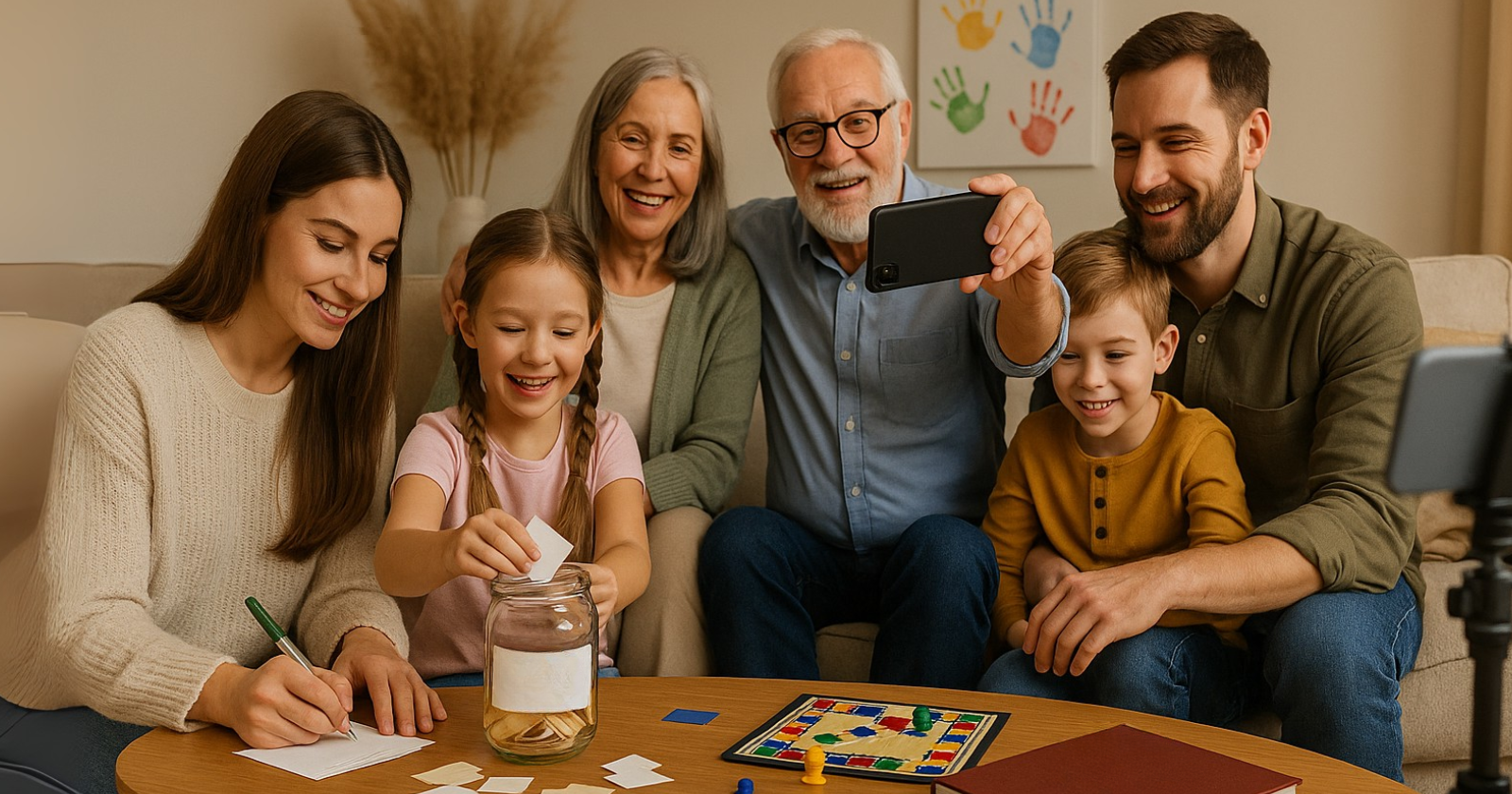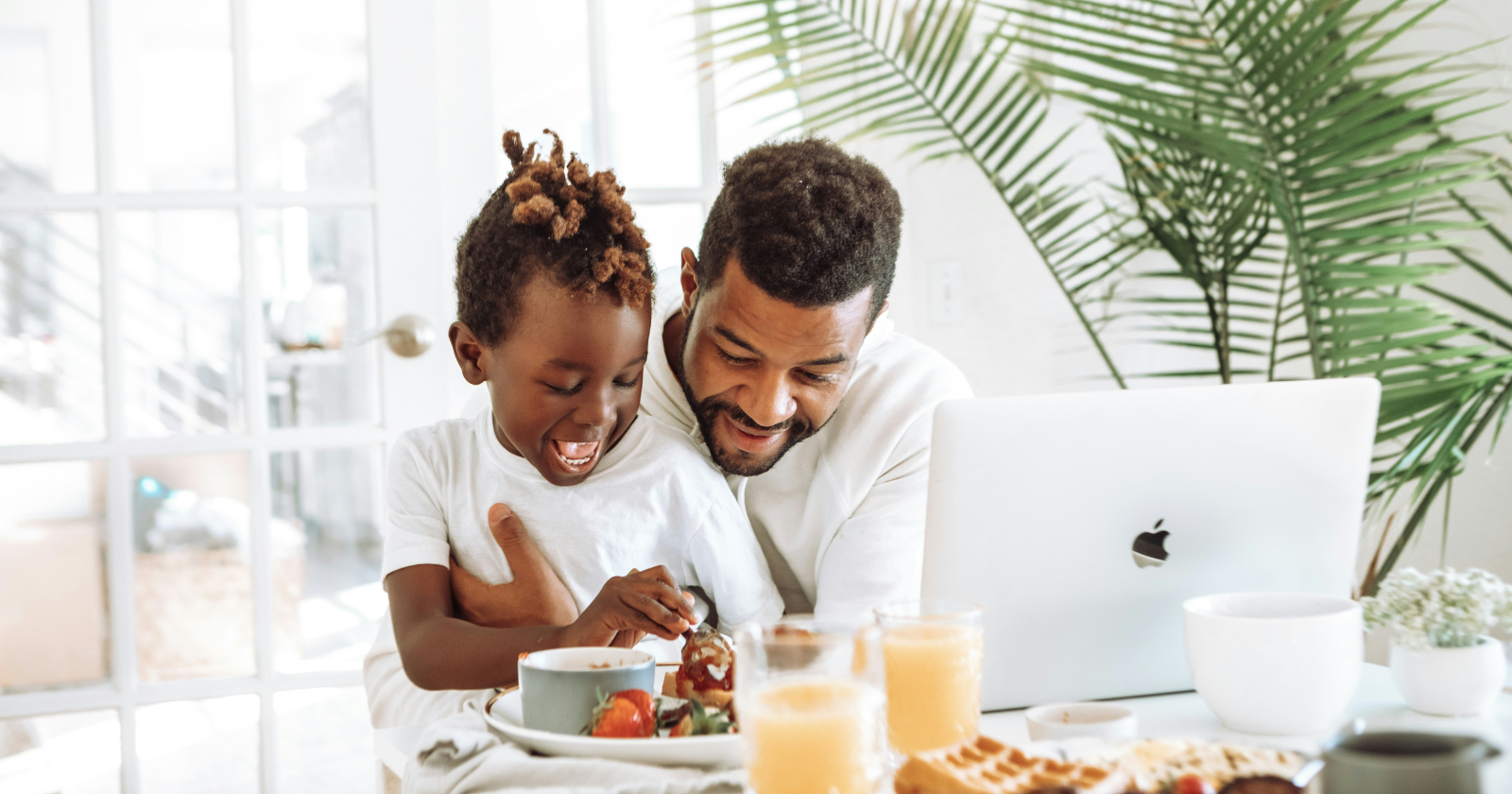When I think about the moments that matter most in parenting, they rarely look like the big “teachable” speeches.
My kids don’t remember the careful mini-lectures I gave them about kindness or responsibility. What sticks are the small, everyday rhythms—the little habits that stitch us closer together.
Big life lessons have their place, but kids soak up far more from how we consistently show up in the ordinary.
And sometimes, the things that feel tiny or even repetitive are what create the deepest bonds.
Here are seven habits that I’ve noticed make all the difference.
1) Saying yes to connection before correction
When Milo spills his water again or Ellie interrupts with one of her endless questions, I often feel that urge to snap with a “Not now!”
But I’ve learned something: if I pause and connect first, the correction lands better.
Sometimes this means crouching down to Milo’s level, wiping his chin, and saying, “Oops, water everywhere—we’ll clean it up together.”
Or it’s putting a hand on Ellie’s shoulder before gently reminding her to wait her turn.
It’s not dramatic. It takes only a few seconds. But those small gestures tell my kids: “You matter more than your mistake.” As Dr. Dan Siegel has said, connection primes children for cooperation.
2) Sharing small daily rituals
Bedtime books, morning cuddles, Saturday pancakes—none of these are elaborate, but they’re anchors.
Related Stories from The Artful Parent
- People who swore they’d never parent the way they were parented usually display these 9 behaviors by the time their kids turn 12 — and every single one traces directly back to the parent they were trying not to become
- You know the pattern has passed to the next generation when your daughter apologizes for crying—not because anyone told her to stop but because she watched you suppress your own tears so many times that she learned the lesson you never meant to teach
- 7 sounds from your childhood home that you’ll never hear again—and the reason they still make you feel something when you close your eyes
Ellie knows I’ll sing the same lullaby every night, and Milo expects me to hum when I sway him before nap.
Do I sometimes get tired of the repetition? Absolutely. But I’ve realized that for kids, rituals are more than routine—they’re proof of being consistent.
They whisper, “I can count on you,” even when the rest of the day feels unpredictable.
And truthfully, these little rituals are the ones they’ll talk about years from now, long after the “lessons” fade.
3) Naming feelings in the moment
It can feel almost silly to narrate emotions out loud. “You’re frustrated that the block tower fell.” “You’re proud you zipped your jacket.” But over time, these labels become part of their language.
Milo can’t quite say words yet, but when I acknowledge his feelings—“You’re sad that Daddy went to work”—his body softens, as if he’s relieved someone gets it.
- I’m 65 and I finally stopped pretending I need close friends – not because I’m bitter or broken, but because I realized that solitude isn’t loneliness when you’ve built a life that doesn’t require constant validation from other people - Global English Editing
- My son set up a video call so I could watch my granddaughter’s school play and I spent the entire time trying to figure out how to unmute myself — by the time I did, the play was over and everyone was waving goodbye and I waved back at a screen that had already gone dark - Global English Editing
- The art of retiring well: 8 things boomers who actually enjoy it figured out before they ever stopped working - Global English Editing
And Ellie, at five, now comes to me saying things like, “I felt nervous at circle time.” That’s the payoff.
As psychologist Susan David has noted, “Emotions are data, not directions.” Giving our kids words for that data may look like a small, boring habit, but it gives them tools for life.
4) Letting them help, even when it slows me down

I’ll be honest: it’s faster to cook dinner alone than to let Ellie stir, spill, and ask a dozen questions.
But when I hand her the spoon, I’m not just making soup—I’m showing her she belongs in the work of our home.
Milo toddles around with his toy broom while I sweep, and I thank him for “helping.” These tiny inclusions build pride and competence.
They tell kids, “You’re not just cared for, you’re a contributor.”
Sure, it adds time. But the bond we build over a wobbly, stirred pot or shared clean-up is worth every extra minute.
5) Making space for unhurried play
Some afternoons, I find myself itching to rush through playtime—because dishes are piled high or emails are waiting.
But when I sit down on the floor with Ellie and Milo and just follow their lead, something shifts.
It doesn’t look like much from the outside. Sorting leaves into baskets. Building yet another couch cushion fort.
But kids notice when we’re present without an agenda. That presence says, “You’re worth my time, just as you are.”
And honestly, the laughter and weird little games they invent are the memories that stick with me more than anything I planned.
6) Repairing after I lose my cool
No parent gets this right all the time. I’ve snapped at Ellie in the rush to get out the door. I’ve sighed too loudly at Milo’s 3 a.m. wake-up.
The habit that matters most isn’t never messing up—it’s circling back.
Later, I’ll kneel beside Ellie and say, “I shouldn’t have yelled this morning. I was frustrated, but I don’t want you to feel small.”
The relief on her face reminds me that repair matters more than perfection.
As Brené Brown has noted, “What we don’t need in the midst of struggle is shame for being human.”
Modeling repair shows our kids that relationships bend, but they don’t have to break.
7) Choosing presence over performance
There are days I feel like I should be teaching bigger, deeper lessons—about resilience, about kindness, about hard work.
But the truth? My kids aren’t hanging on to my speeches. They’re watching how I live.
They see me put my phone aside at dinner. They notice when Matt and I resolve disagreements calmly.
They feel it when I slow down enough to let Milo nap on my chest, or when I really listen to Ellie’s winding stories.
It’s not exciting. It’s not share-worthy. But it’s in those small choices that the deepest bond grows. Because our kids don’t need constant wisdom, they need us—present, steady, and real.
Final thoughts
Looking back, the things my kids will carry with them aren’t the carefully crafted lessons I’ve tried to deliver.
They’ll remember the bedtime songs, the hand on the shoulder, the silly leaf-sorting games, the moments I owned my mistakes.
Big life lessons fade. But the small habits—repeated daily, offered with love—become part of who they are.
So maybe the real question isn’t, “What big wisdom can I pass on?” but “What small, steady habits am I showing them today?”



